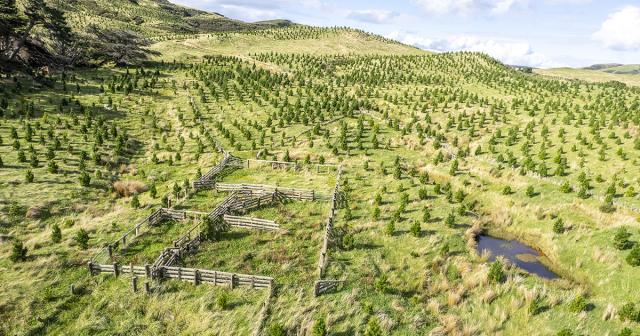Beef + Lamb New Zealand has released updated independent research showing whole sheep and beef farm sales for conversion to forestry, particularly carbon farming, continue at an alarming rate. Of particular concern is a significant shift in the type of land being sold.

The research by Orme & Associates shows a further 38,921 hectares has been confirmed as sold since the last report in September 2024.
Revised confirmed sales in 2023 now total 29,518 hectares and in 2024 now 30,483 hectares – that figure is expected to rise as further sales are confirmed.
Sales through Overseas Investment Office approvals and to carbon-only forestry entities continue to dominate.
The total amount of whole sheep and beef farms sold since 1 January 2017 is now more than 300,000 hectares.
B+LNZ’s conservative estimate is that more than two million stock units have been lost to afforestation since 2017.
B+LNZ Chair Kate Acland says the figures reinforce the need for action.
“While we appreciate the Government’s announcement this week about legislation being introduced to restrict wholesale conversions based on land use classes, the numbers show whole-farm sales for conversion to forestry for carbon credits are continuing at pace.
“Anecdotally we’re still hearing of a significant number of farms being sold this year, despite the Government announcing the limits last year.
“We’re concerned that some sales are continuing on the basis of intent to purchase land before the limits were announced. We urgently need the Government to tighten the criteria around proof of intent to purchase.
“More broadly we have questions about whether the limits announced last year will go far enough and slow down this land-use change significantly. In particular Land Class 6 is the foundation of our breeding farms and 15,000 hectares every year coming out of this will add up over time.
“Our sector wants to be able to get on and further grow exports, not spend time worrying about this issue.”
Acland also highlights the trend of land traditionally well-suited for pastoral farming being increasingly purchased for conversion.
“Across a range of measures Orme & Associates looked at, it’s clear that more and more trees are going onto productive sheep and beef farmland.
“B+LNZ is not anti-forestry. In particular, we strongly support the integration of trees within farms, which we believe is a better approach. Farmers know their land and can plant the right trees in the right places, without affecting overall levels of production.
“Instead, we’re seeing blanket pines replacing sustainable food production.
“We’re also hearing significant concerns from neighbouring farmers about the impacts of a lack of pest and fire risk management around recently converted areas of land.”
The research shows Hawke’s Bay and Wellington/Wairarapa remain preferred locations, and Southland has seen a notable increase in recorded sales.
There has been a significant slowdown in the Gisborne region, likely due to the environmental impacts of adverse weather events such as Cyclone Gabrielle and tightened harvesting conditions being set by regional councils.
The Orme & Associates report is available on the B+LNZ website here (PDF, 2.7 MB)
ENDS
For media queries, email [email protected]